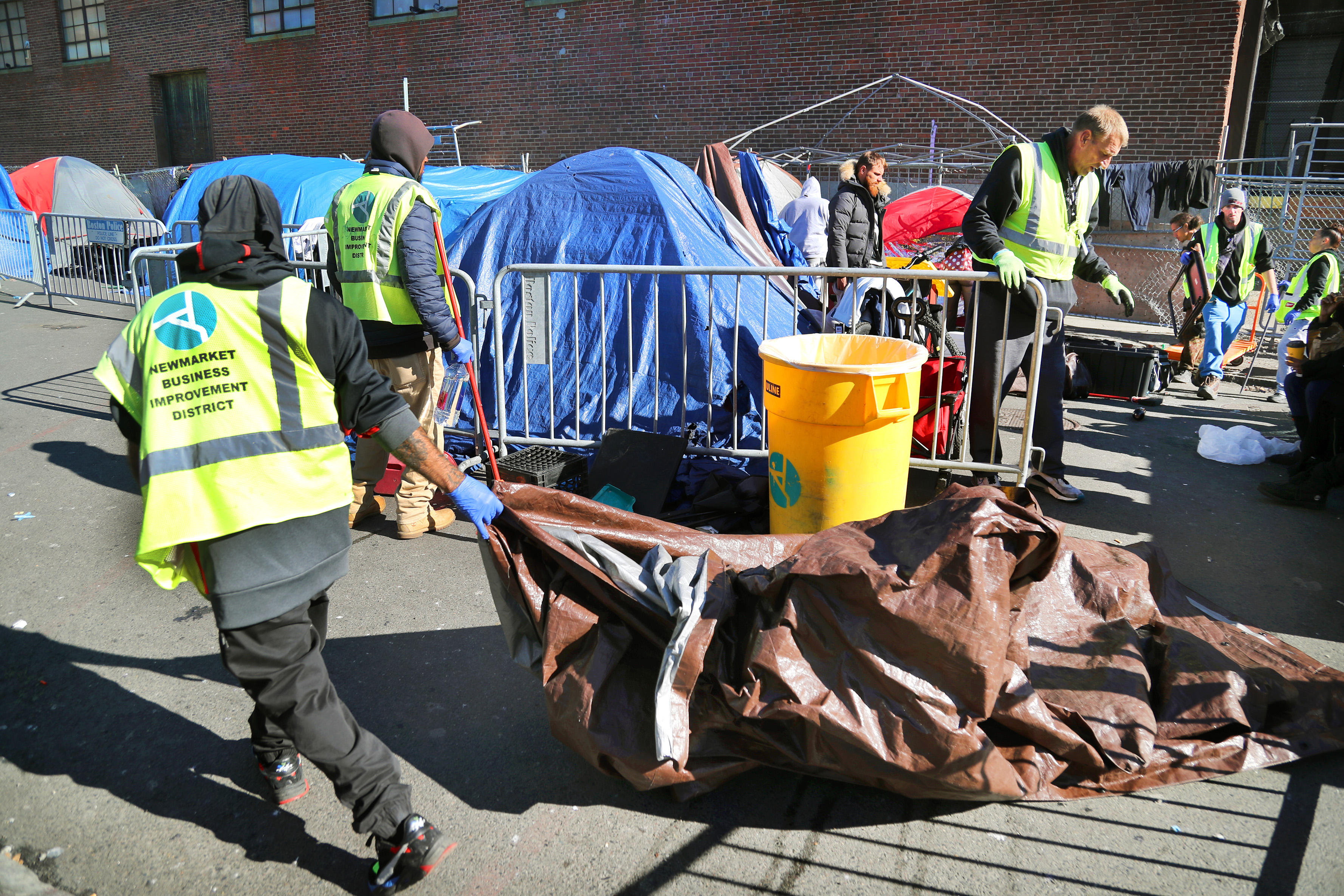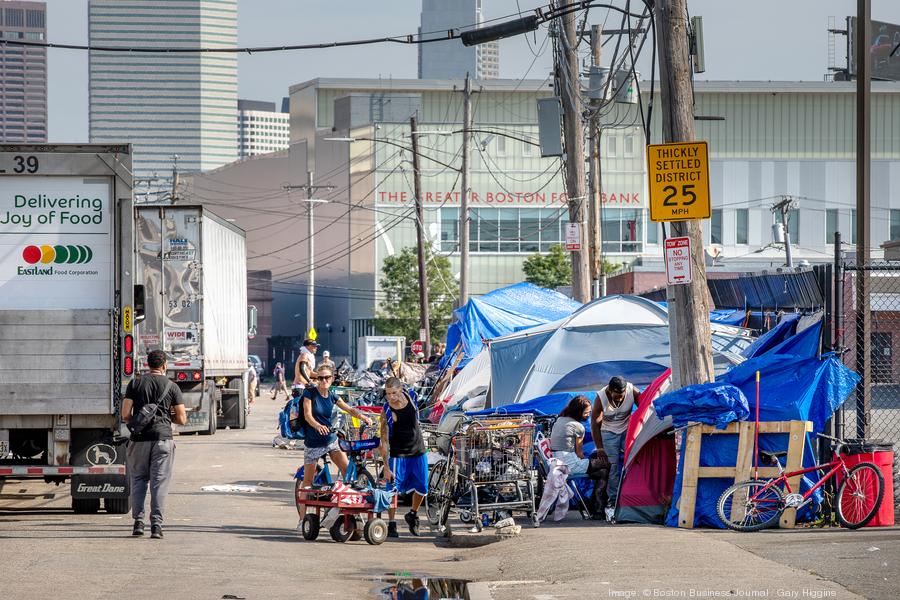
The epicenter of the region's substance use disorder, mental health and unsheltered homelessness crises at Massachusetts Avenue and Melnea Cass Boulevard is "in a different and better, safer position" than one year ago, Boston Mayor Michelle Wu said Wednesday, but an influx of individual migrants is now stressing the city's shelter system.
Massachusetts has been under a declaration of an emergency for nearly a year as the increase in homeless families migrating into the state pushed the state's emergency family shelter program over capacity. The state is statutorily required to provide shelter for homeless families, but the mandate does not apply to homeless individuals.
WATCH ANYTIME FOR FREE
>Stream NBC10 Boston news for free, 24/7, wherever you are. |
Boston is seeing "a lot of individual adults who are arriving ... as part of the flow of migrant individuals who are moving all around the country," Wu said on "Java With Jimmy," adding that it's the city's responsibility to operate a shelter system for everyone who doesn't qualify for the state's family shelter system.
Get updates on what's happening in Boston to your inbox. Sign up for our >News Headlines newsletter.
"We had, at last count, I think it was about a third of our beds are now, at the individual shelter system, are now newly arrived migrant individuals. And so the strain, as we see more people arriving who have needs for recovery and treatment with the opiate crisis, is now ... there's even less space given the additional need that has been introduced from new immigrant individuals as well," the mayor said. "And so everything's kind of coming together all around this recognition that we just don't have enough housing in the city for everyone."
Wu said the city's push in November to remove tent encampments and connect people without housing who had been living at Mass. and Cass with services and shelter made the city's infrastructure "bigger and stronger," but that a longer-term solution is still needed. She acknowledged the situation is "a different challenge with a different number of people" in warm weather compared to the cold months.
"Not having the tents there permanently still is putting us in a different and better, safer position than we were a year ago this time," she said. "Obviously, the long-term solution is having dedicated treatment space for people to stay for many months at a time. Long Island and all the permitting process and how many years that's taken is absolutely ridiculous, but we are still working through that."




